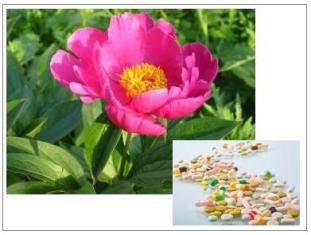Germany and France: EU Herbal Directive Will Not Damage Us
Germany and France: EU Herbal Directive Will Not Damage Us
By Shane Starling, 02-May-2011
The European Union Traditional Herbal Medicinal Products Directive (THMPD) - fully implemented across the bloc after a seven-year transition period over the weekend - has been welcomed by German and French trade groups, even as opposition mounts against it.
While groups in the UK raise funds to mount a legal challenge against a regulation they believe places unfair burdens on the botanical products sector, and 500,000-signature strong petitions are raised by the group Avaaz in other parts of Europe, French and German trade groups say it is business as usual for their sectors.
The German Federation of Pharmaceutical Manufacturers (BAH) said the passing of the deadline for products to achieve THMPD registrations meant little because most of the 2500 or so herbal medicines on the German market had long ago been pre-approved under national botanical medicines rules.
“We do not have the problem that is being felt in the UK where there are so many products on the market without registrations,” the group’s head of herbal and homeopathic medicinal products, Dr Barbara Steinhoff told NutraIngredients this morning. “We have always supported the regulation because it guarantees safety, quality and efficacy.”
Non-registered herbal products will continue to be available but only via herbal practitioners.
Dr Steinhoff said “only a handful of products” had not applied for registration, while about 350 registration applications had been lodged with the German medicines agency for products that required them.
Harald Dittmar, the managing director at the German Association of Food Supplements, Cosmetics and Pharmaceuticals (BDIH), said the deadline altered little, without being as supportive as the BAH because he said its demarcations already existed in most countries.
The secretary general of the French Food Supplements Association, Synadiet, Guillaume de Durat agreed that in France, “there are few companies that are affected. They’ve been preparing for it so there has been no need to panic.”
UK
In countries like the UK and Ireland there is more concern because 1000s of products remain on shelves without registrations that can cost in excess of €50,000, a situation that has provoked the Alliance for Natural Health into a fund-raising campaign to mount a legal action against the directive.
In the UK there have been 211 applications for the likes of St John’s wort and valerian, with 105 registrations and no rejections to date.
The industry has complained the registrations are too costly for small businesses although Michael McIntyre, chairman of the European Herbal and Traditional Medicines Practitioners Association, said the market needed more regulation.
"Products that go on the market now will definitely do what it says on the bottle, while we didn't know how good they were in the past,” he told the BBC.
"But registration is expensive so perhaps there may be fewer products on the market and a smaller range. It's difficult to argue that the market should stay as it is, without any regulation, but how many businesses will pack up and walk away? I can't say."
Non-registered products will continue to be available but only via herbal practitioners and products already on shelves will be able to sell through.
Draconian
Avaaz argues against the THMPD on more political grounds. Its website calls on the European Commission to, “amend the THMPD Directive, suspending the draconian measures against herbal medicines and removing all barriers to traditional remedies with a long history of use inside and outside Europe.
“We further call on our governments to refuse to comply with this Directive until it is amended. We have a right to choose among all remedies and medicines that can keep ourselves and our families healthy.”
But EC health commissioner John Dalli said: "We have now reached the end of a long transition period which has given producers and importers of traditional herbal medicinal products the necessary time to show that their products have an acceptable level of safety and efficacy."
In addition to the claims potential of a product registration, the THMPD dictates that all herbal products not classified as food supplements (like many 'spice rack' herbs such as garlic and sage) or those considered medicines, must have gained THMPD registration by April 30, 2011 to remain on market.
Reference:
http://www.nutraingredients.com/Regulation/Germany-and-France-EU-Herbal-Directive-won-t-damage-us
